‘Tips to help get you into ketosis so you can start burning FAT for FUEL on a ketogenic diet!’
Perhaps the #1 question I get asked on a daily basis and see amongst men and women alike across the inter web:
How Do I Start Keto?
Today I’m going to tackle the first few steps you will need to implement an amazing ketogenic diet into your life. As with most topics, please be aware that my way of doing things is usually pretty different than most especially when it comes to weight loss. I don’t believe in crash diets, I don’t believe in staying in caloric deficits for extended periods, I don’t do detoxes or cleanses, you’ll never see me suggest a quick fix, and long term health is ALWAYS my first priority. To me, weight loss should be a byproduct of leading a well rounded healthful lifestyle. Eating vegetables, staying away from “fake food”, fueling yourself properly, moving your body, practicing self care, and believing in moderation with all aspects of life. These are my keys to fitness and wellness success.
I take A LOT of things into consideration with my nutritional clients such as current state of hormones, previous dieting history, disordered eating, lifestyle, overall health factors and risks, medical conditions, and about twenty other things, but for the average healthy person just wanting to start keto here is the simplified version for you!
Your Caloric Intake
First things first though. When things like hormones, sleep, stress, and current overall health are equal ultimately weight loss (gain or maintenance) will come down to the amount of food the body is taking in and putting out. In order to have an idea of how much or little you should be eating most people will simply suggest a macro calculator to determine calories. The problem I have with this though is it does not take how you are currently eating into consideration. Say for example you are currently only eating about 800 calories, but an online calculator suggest you eat 1,500. OR you are eating over 3,000 calories and you are told to only eat 1,500. That could be a recipe for metabolism disaster (again, always think about long term health… not the quick fix).
Instead my suggestion is to take at least one week (preferably two) to track the food you are currently eating. Download an app like MyFitnessPal, Cronometer, or CarbManager and before you actually put whatever food you are going to eat into your body weigh it and input it first. This will give you the BEST idea of your current intake and eating habits. It will give you the most accurate baseline on where you need to start.
Reduce Your Carbs
It’s no secret that the ketogenic diet is a low carb way of eating. The problem that many have when they first start out is they go from eating 300 carbs a day to eating <20 overnight. This is going to be a HUGE shock to the body (and your mind). Instead of jumping in so drastically and risking a huge case of the keto flu, take another week to simply reduce the amount of carbs you are currently eating. If you are eating a ton of carbs, take 1-2 weeks and reduce gradually. Maybe subtract 10-15 grams of carbs per day until you get down to 20-30 grams of NET carbs (total carbs minus fiber).
Set Your Macros
Once you have a set point for your current intake AND assuming you are already eating well over maintenance calories AND you have slowly begun to reduce your carbohydrate intake, simply subtract about 200-300 calories from your current intake which will put you in a new deficit.
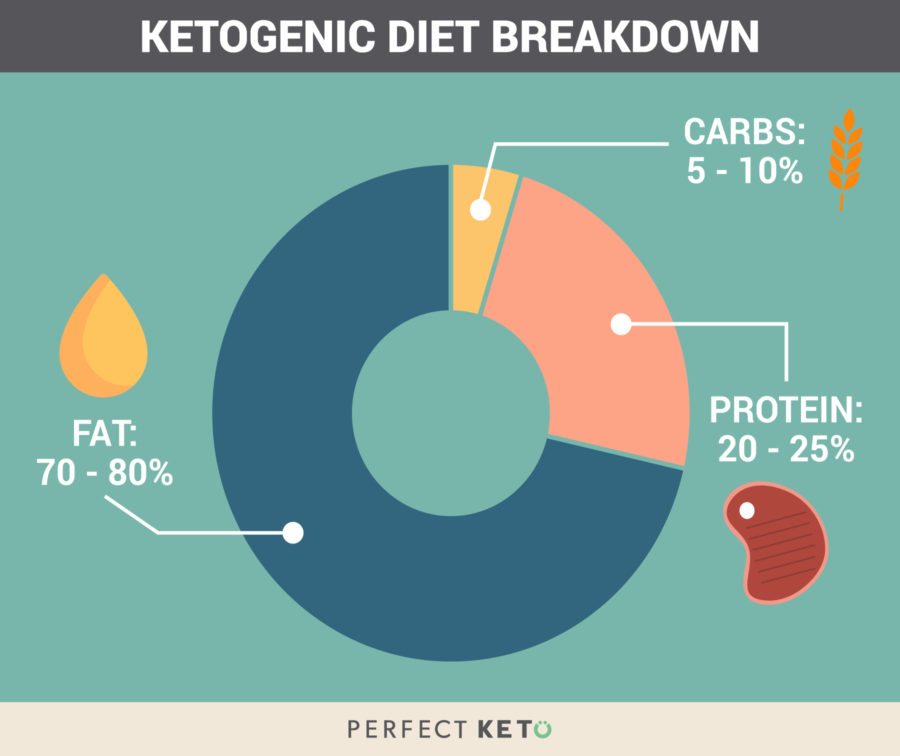
Protein- Set this anywhere from .8 to 1.0 grams per pound of body weight. If you are an athlete, very active, already have muscle on your body, or you simply prefer eating more meat go with the higher range. If you are sedentary, don’t work out, and don’t care to build muscle you can stick with the lower range.
Carbs- This is an easy one… 20-30 grams NET carbs. Some people believe in total carbs, but that simply just removes vegetables from your diet which is a huge no no to me. Veggies are good for you, eat your veggies (the low carb ones for now).
Fat- Dietary fat is going to be somewhat of a “lever”. This will be the main macronutrient that gets adjusted depending on your goals. Fats will also be what you eat to fill in the rest of your macro nutrient profile (protein/carbs/fats).
For example, for me personally (40 years old, 5′ tall, 105 pounds, eating maintenance calories, moderately active) my calories are roughly around 1,900 (yes, thank you killer metabolism from NEVER dieting… means I can eat more to maintain weight AND can still eat quite a bit on average to lose weight if I ever wanted to). This is what my macros would look like if I tracked them:
Protein= 85 grams (85 x 4 calories per gram= 340 calories)
Carbs= 20-30 NET grams (30 x 4 calories per gram= 120 calories)
340+120= 460 calories
1,900 (my maintenance calories) – 460 calories= 1,440 remaining calories to fill with dietary fat
1,440 calories ÷ 9 calories per gram=
Fat= 160 grams
Track Your Macros
I’m not a fan of tracking macros for extended periods of time however, this is the best way to #1 really get an idea of how much/how little you are eating, #2 stay on track and on plan, #3 give you a better idea of portion sizes, and #4 pin point foods in your diet that may not work well for you specifically. Many people suffer from food sensitivities so having a log of everything you eat day to day might help determine patterns of feeling unwell or mysterious symptoms you may experience. So until you get the hang of how much/little you need to eat to reach your goals, inputting your intake will help keep you on track. Eventually though, give it up completely. Much more freeing and healthy to NOT track every single bite of food you eat for the rest of your life.
Keto Flu
Don’t start keto like me… I ended up in urgent care because I had no idea what was going on with my body when I first started keto. I literally felt like I was going to die. Had I truly focused on this one single detail in the research I did in keto the days and weeks leading up to me going keto I could have breezed through this horrible hiccup.
Electrolytes, electrolytes, electrolytes.
Stay on top of your sodium, magnesium, and potassium.
SALT everything you eat and then add more salt. The body is dumping water so quickly in these first few days, you need to replenish just as fast (if not faster). If you feel a headache coming on or experience things like fatigue or dizziness… drink pickle juice (yes, I said pickle juice) or sole water to help keep your sodium up.
Consider taking a magnesium supplement like CALM.

This is great to take at night and will help reduce the chances of muscle cramps as well.
Load up on spinach, bonus points if its lightly cooked. Eat some avocado. Have some wild caught salmon. Snack on pumpkin seeds. These foods will help bring up your potassium levels.
And when you’ve done all of this… have some more salt!
You’re welcome.
Measure Your Ketones
As with the scale for weight and tracking macros, I’m not a proponent of measuring things indefinitely. However, sometimes it can be fun to see how the body is reacting and adapting to changes you are implementing. On the keto diet there are actually ways to measure the ketone bodies present in your body.
One way is by using urine strips:
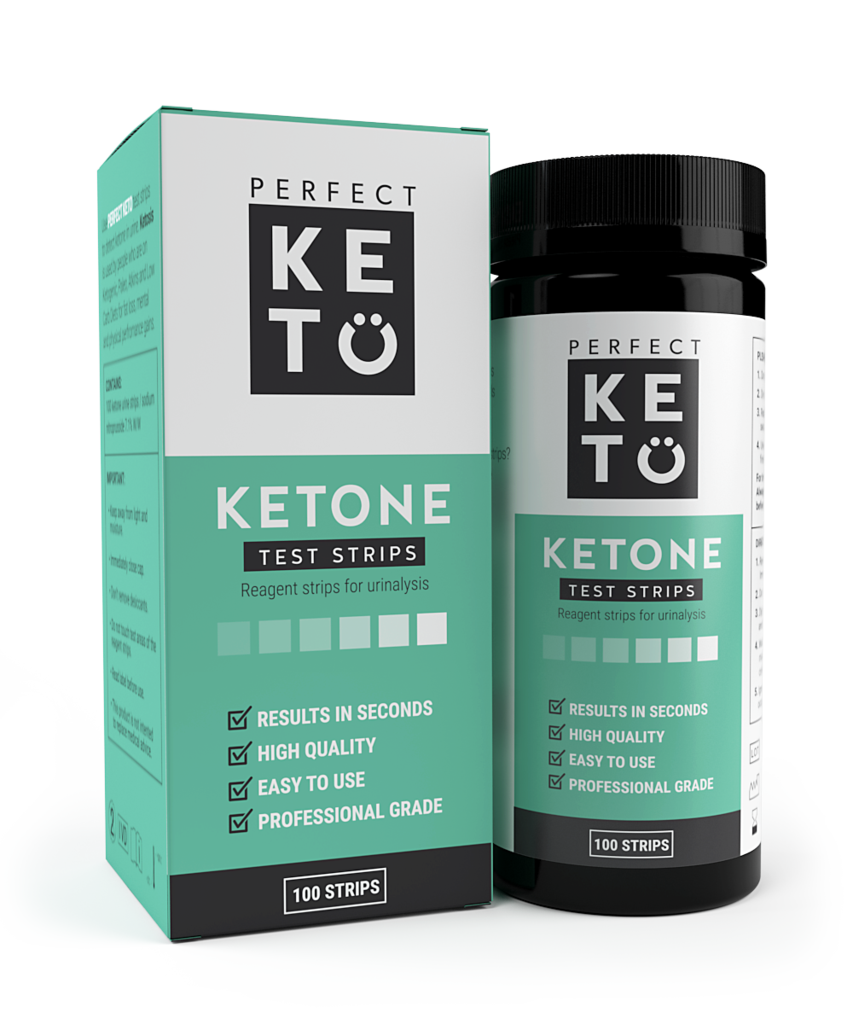
Please note these are only handy during the first 1-2 weeks on keto. They will show you the amount of ketones in your urine which can be helpful to make sure your carbs really are low enough to be in ketosis to start with. Mid levels are optimal in my opinion… constantly having darker reads can often times mean dehydration. After the initial adaptation phase though, these won’t be much help. It’s far more important to know what your insides are actually doing.
The BEST way to measure if you are in ketosis is using a blood ketone meter:
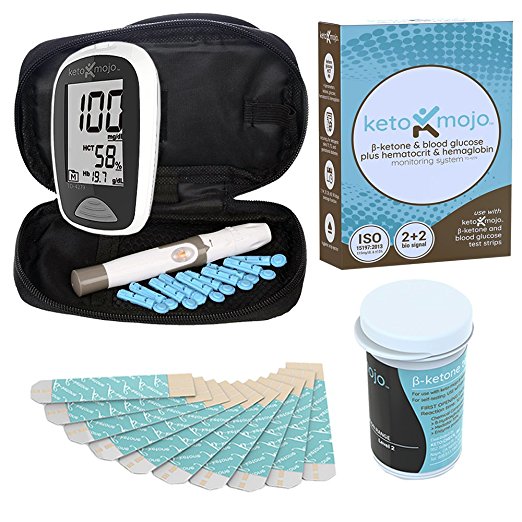
This will tell you EXACTLY where you are in terms of producing ketone bodies. Its the most accurate because it shows you whats going on INSIDE your body, not what you are flushing down the toilet so to speak.
Get Into Ketosis Faster
Like I’ve said now over and over… I’m not a fan of quick fixes and gimmicks, BUT there are a few things you can do to help your transition to keto a bit quicker.
- fasting (Only extend this practice if you are familiar with it. Fasting should NOT be forced.)
- exercise (depletes your glycogen, especially high intensity)
- exogenous ketones
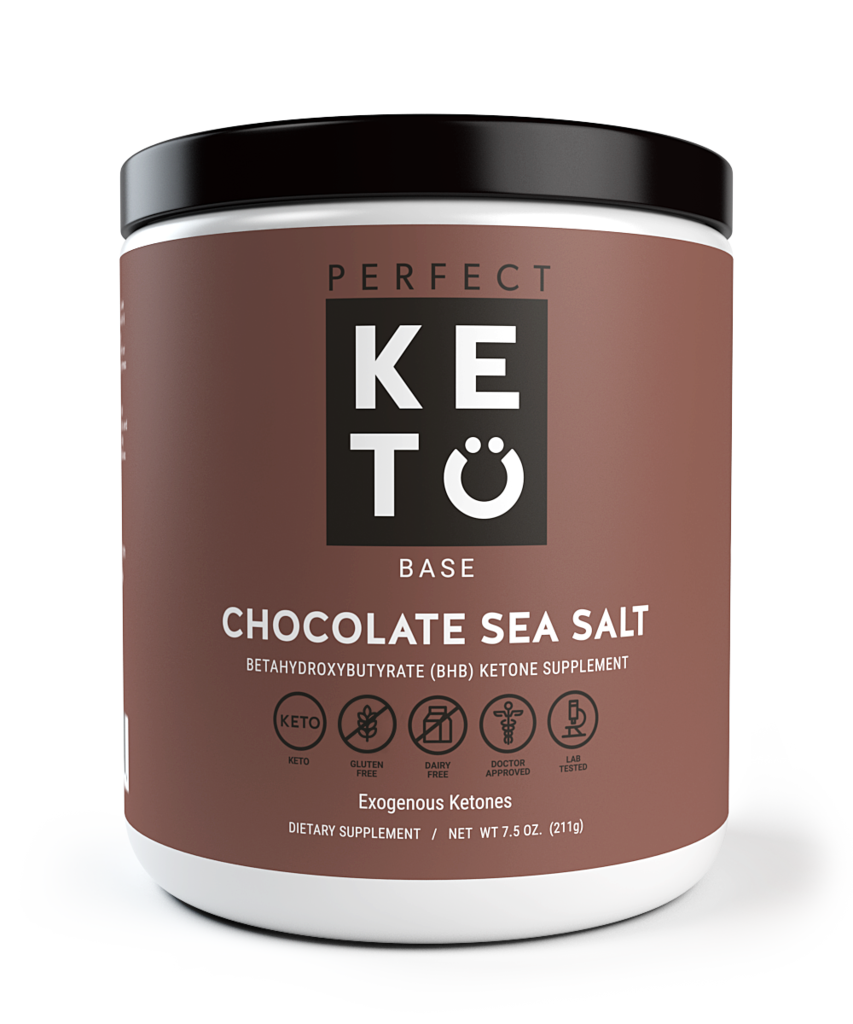
Exogenous ketones are another great resource for kicking yourself into ketosis sooner and having plenty of ketone bodies available for energy. For me personally, I still implement them into my routine on occasion but mainly to help extend fasting. Since they completely suppress my appetite, they come in handy when traveling or when I know food won’t be easily accessible.
Again, as with the urine and blood meter exogenous ketones aren’t a necessity but could help the process a bit and let you know if something needs to be tweaked.
If you’re interested in both of these items AND a couple of my other favorites which I have talked about numerous times in my videos and here on my blog, Perfect Keto released a new little AWESOME starter bundle:
You’ll get the urine strips and exogenous ketones, PLUS my favorite supplements of all time: CHOCOLATE collagen powder and powdered MCT oil which is makes any and all of your drinks including bulletproof coffee SO foamy and frothy!
In terms of starting keto though… this is basically it. Seems pretty straight forward huh? Lower your carbohydrates, increase your dietary fats, feel AWESOME!
Next topics for the blog:
- Benefits to the keto diet
- Troubleshooting keto
- Best foods for keto
- Structuring keto meals
- Optimize your keto
- Adjusting keto macros for weight loss or weight gain
- Incorporating carbs back into your diet
- Making keto YOUR OWN
I hope this was helpful to you… until next time friends!

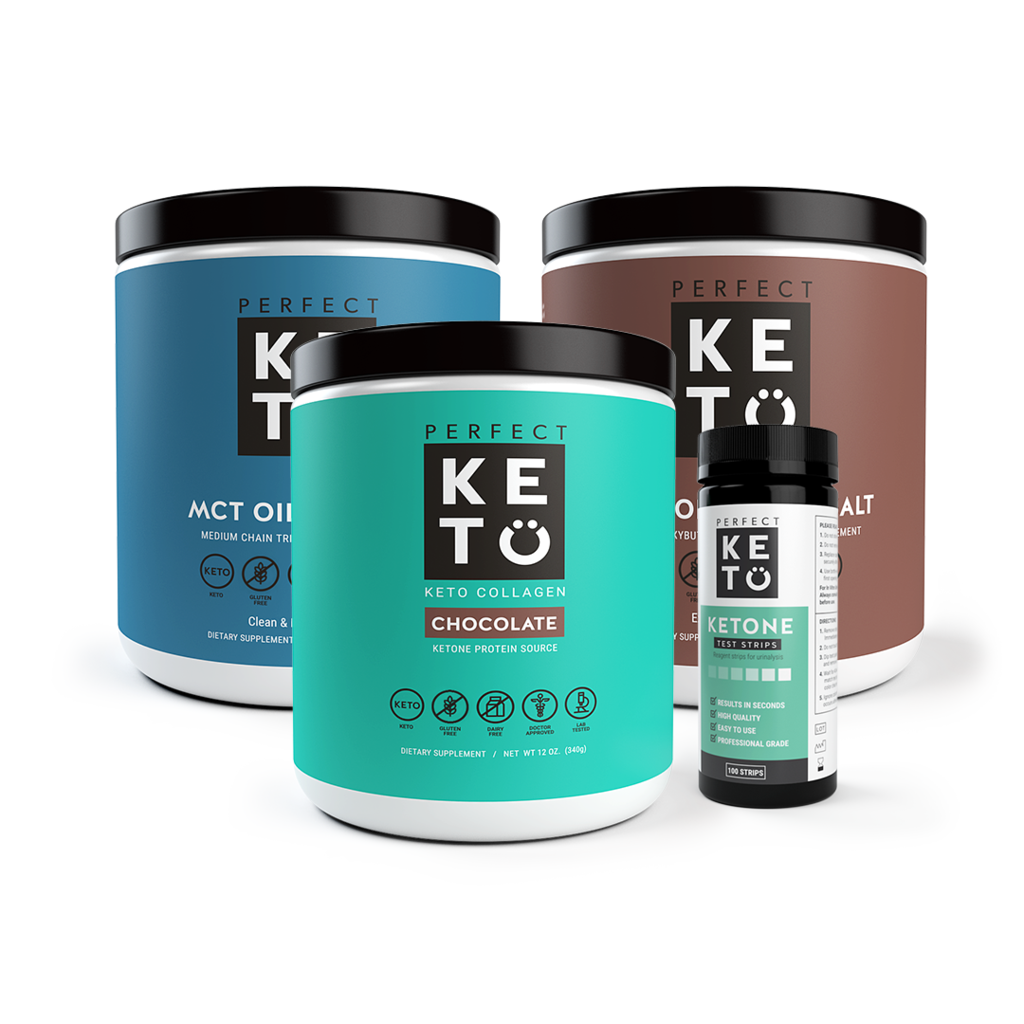


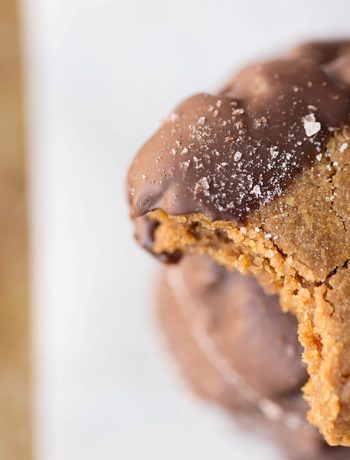
2 Comments
Mandy Williams
July 13, 2018 at 6:06 amThank you for all of the information….can you direct me as to the best time to test blood ketone levels and what is the goal range? I’ve read mixed opinions on both questions. Thanks so much for all of the info!!
Mrs. C
September 30, 2019 at 5:42 amI have been following you for about 2 years.. am still on the Yo YO faze of my journey.. reading this.. allows me to be patient with myself.. gracias!